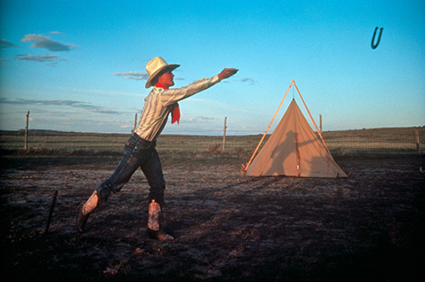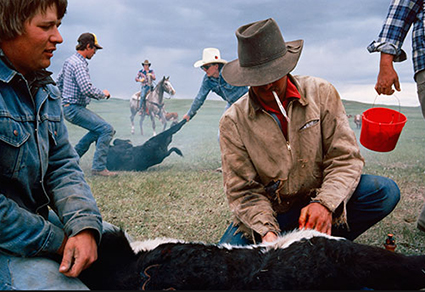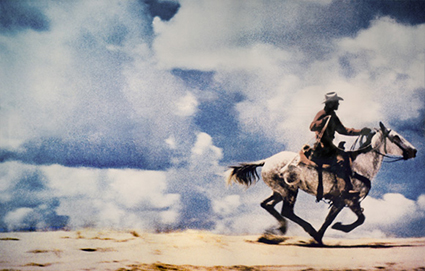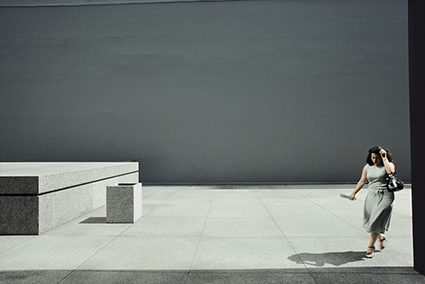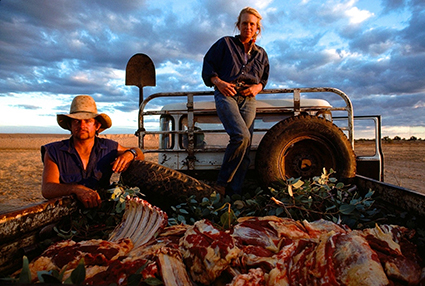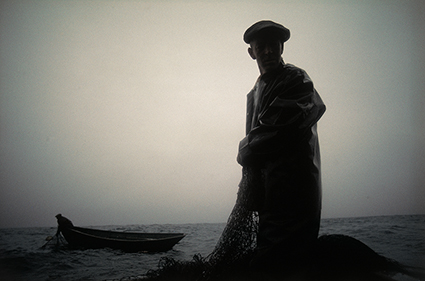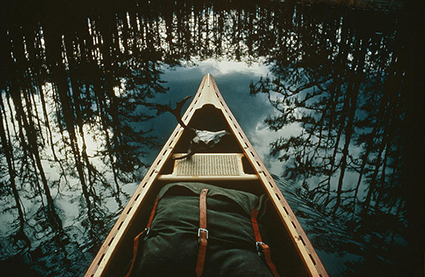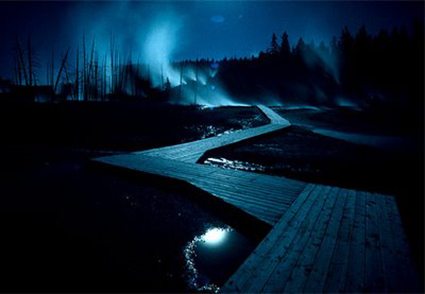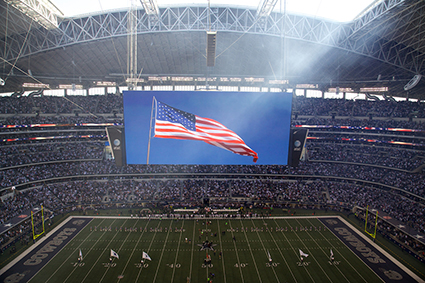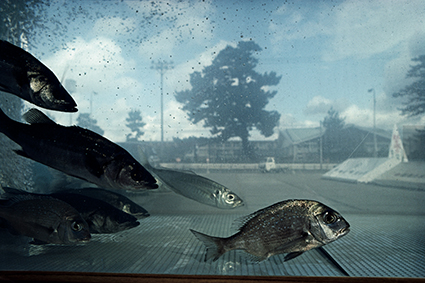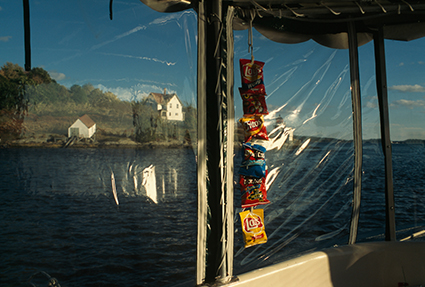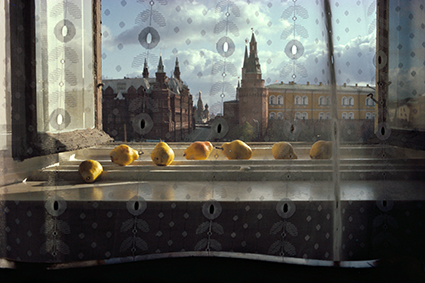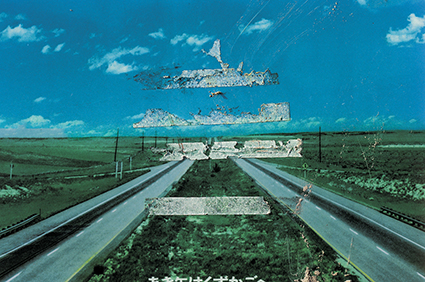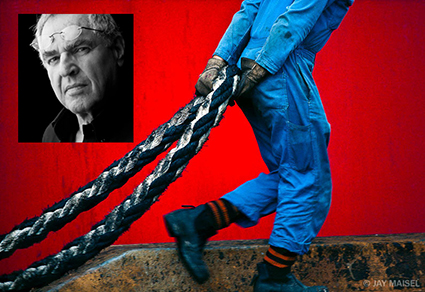Here’s a collection of quotes by photographer Wynn Bullock.
“At forty-two, I decided to become a photographer because it offered a means of creative thought and action. I didn’t rationalize this, I just felt it intuitively and followed my intuition, which I have never regretted.” – Wynn Bullock
“For me photography has been a profession, an avocation. Now it has become a way of life.” – Wynn Bullock
“I love the medium of photography, for with its unique realism it gives me the power to go beyond conventional ways of seeing and understanding and say, “This is real, too.” – Wynn Bullock
“As sounds in a musical composition can be used not to express physical objects but ideas, emotions, harmonies, rhythmic orders and most any expression of the human mind and spirit, so light can be used visually to express the mind and spirit.” – Wynn Bullock
“When I photograph, what I’m really doing is seeking answers to things.” – Wynn Bullock
“Mysteries lie all around us, even in the most familiar things, waiting only to be perceived.” – Wynn Bullock
“Searching is everything – going beyond what you know. And the test of the search is really in the things themselves, the things you seek to understand. What is important is not what you think about them, but how they enlarge you.” – Wynn Bullock
“I didn’t want to tell the tree or weed what it was. I wanted it to tell me something and through me express its meaning in nature.” – Wynn Bullock
“A thing is not what you say it is or what you photograph it to be or what you paint it to be or what you sculpt it to be. Words, photographs, paintings, and sculptures are symbols of what you see, think, and feel things to be, but they are not the things themselves.” – Wynn Bullock
“What you see is real – but only on the particular level to which you’ve developed your sense of seeing. You can expand your reality by developing new ways of perceiving.” – Wynn Bullock
“The medium of photography can record not only what the eyes see, but that which the mind’s eye sees as well. The camera is not only an extension of the eye, but of the brain. It can see sharper, farther, nearer, slower, faster than the eye. It can see by invisible light. It can see in the past, present, and future. Instead of using the camera only to reproduce objects, I wanted to use it to make what is invisible to the eye, visible.” – Wynn Bullock
“In a photograph, if I am able to evoke not alone a feeling of the reality of the surface physical world but also a feeling of the reality of existence that lies mysteriously and invisibly beneath its surface, I feel I have succeeded. At their best, photographs as symbols not only serve to help illuminate some of the darkness of the unknown, they also serve to lessen the fears that too often accompany the journeys from the known to the unknown.” – Wynn Bullock
“As I became aware that all things have unique spatial and temporal qualities which visually define and relate them, I began to perceive the things I was photographing not as objects but as events. Working to develop my skills of perceiving and symbolizing these event qualities, I discovered the principle of opposites. When, for example, I photographed the smooth, luminous body of a woman behind a dirty cobwebbed window, I found that the qualities of each event were enhanced and the universal forces which they manifested were more powerfully evoked.” – Wynn Bullock
“My pictures are never pre-visualized or planned. I feel strongly that pictures must come from contact with things at the time and place of taking. At such times, I rely on intuitive, perceptual responses to guide me, using reason only after the final print is made to accept or reject the results of my work.” – Wynn Bullock
“What I feel is that the picture-taking process, anyway a greater part of it, is an intuitive thing. You can’t go out and logically plan a picture, but when you come back, reason then takes over and verifies or rejects whatever you’ve done. So that’s why I say that reason and intuition are not in conflict–they strengthen each other.” – Wynn Bullock
“Everything went together perfectly, and this is what I mean by knowing. I didn’t have to analyze anything. I just recognized what was in front of me. All I had to do was set up and take the picture.” – Wynn Bullock
“The urge to create, the urge to photograph, comes in part from the deep desire to live with more integrity, to live more in peace with the world, and possibly to help others to do the same.” – Wynn Bullock
“I feel all things as dynamic events, being, changing, and interacting with each other in space and time even as I photograph them.” – Wynn Bullock
“There is nothing mysterious about space-time. Every speck of matter, every idea, is a space-time event. We cannot experience anything or conceive of anything that exists outside of space-time. Just as experience precedes all awareness and creative expression, the visual language of our photographs should ever more strongly express the fourth dimensional structure of the real world.” – Wynn Bullock
“I now measure my growth as a photographer in terms of the degrees to which I am aware of, have developed my sense of, and have the skills to symbolize visually the four-dimensional structure of the universe.” – Wynn Bullock
“A person is quite different from a tree or rock or stream. By introducing the nude into my pictures, I started perceiving all the things I was photographing in new ways. In contrast or opposition to each other, things became much more significant and interesting, revealing many more qualities than I had ever dreamed of knowing and expressing. By using the nude, I stopped thinking in terms of objects. I was seeing things, instead, as dynamic events, unique in their own beings yet also related and existing together within a universal context of energy and change.” – Wynn Bullock
“For me a nude photograph should be erotic, not devoid of emotion. The body is a sensual thing, sensuality being one of its most beautiful and meaningful qualities.” – Wynn Bullock
“Theoretical scientists who probe the secrets of the universe and philosophers who seek answers to existence, as well as painters such as Paul Klee who find the thoughts of men of science compatible with art, influence me far more than most photographers.” – Wynn Bullock
“I totally disagree with the belief that nature was only made for the use of people. Human beings are not the center of the universe, and, if they are to sustain themselves, it is vitally important for them to be awakened to how closely they are linked with the rest of nature.” – Wynn Bullock
Read more quotes by photographers here.
View documentaries on photographers here.


